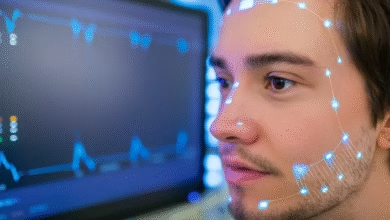Topic: clinical trials
-

Trump Admin Canceled 383 Clinical Trials, Dropping 74,000 Patients
A major reduction in federal funding led to the abrupt termination of 383 clinical trials, directly impacting over 74,000 participants and disrupting medical research and patient welfare. The $1.8 billion cut from NIH grants, analyzed by Harvard researchers, resulted in significant inefficiency, ...
Read More » -

Path to Long-Term HIV Remission
HIV has transitioned to a manageable chronic condition, yet a definitive cure remains elusive, necessitating lifelong antiretroviral therapy for viral control. Recent clinical trials in 2025 demonstrated that antibody infusions enabled some participants to achieve long-term viral suppression with...
Read More » -

The Real Challenges of Commercializing Brain Technology
The development of brain-computer interfaces (BCIs) from lab concept to market faces significant scientific, technical, and market challenges, requiring extensive research and collaboration. Key hurdles include identifying viable applications that meet real human needs and ensuring reliable perfo...
Read More » -

FDA Approves Wegovy Pill: New Weight Loss Tablet
The FDA has approved a daily oral pill version of the weight-loss drug Wegovy, offering a new, convenient alternative to the established weekly injection for managing obesity. Clinical trials showed the daily pill is highly effective, with participants achieving an average weight loss of 13.6% ov...
Read More » -

AI-Powered RADiCAIT Makes Medical Imaging Affordable at TechCrunch Disrupt 2025
RADiCAIT's AI platform converts standard CT scans into synthetic PET images, potentially replacing the need for complex and expensive PET procedures and expanding access to cancer diagnostics. The technology addresses challenges of PET scans, such as patient fasting, radioactive tracers, and geog...
Read More » -

Neurotech in 2025: The Future of Mind and Machine
Neurotechnology is rapidly advancing from research to real-world applications, with brain-computer interfaces (BCIs) entering clinical use and attracting significant investment. The global BCI market is projected to grow substantially, driven by medical needs such as rehabilitation, communication...
Read More » -

Unapproved Weight Loss Drugs: The Wellness Wild West Returns
Influencers are heavily promoting the unapproved experimental drug retatrutide as "GLP-3," creating a dangerous gray market for weight loss seekers despite its lack of FDA approval and established safety profile. Retatrutide is a triple-hormone agonist currently in clinical trials, and its online...
Read More » -

The Ultimate Blood Glucose Monitor Is Finally Here
The PreEvnt Isaac is a novel, non-invasive glucose monitor that analyzes biomarkers in exhaled breath, potentially eliminating the need for finger pricks or implanted sensors. The device originated from a personal need to monitor a child with diabetes and is currently undergoing clinical trials r...
Read More » -

First Human Trial for Fentanyl Vaccine Begins
The first human trial for a fentanyl overdose vaccine has begun, aiming to proactively block the drug's effects before it reaches the brain. Fentanyl is a potent synthetic opioid, often unknowingly mixed into other drugs, and is the leading cause of overdose deaths in the U.S. Unlike reactionary ...
Read More » -

AI Creates Psychedelic Therapy Without the Hallucinations
Psychedelic substances show therapeutic promise for severe mental health disorders, but their intense hallucinogenic effects pose significant risks and practical challenges for treatment. Biotech firms like Mindstate Design Labs are using AI to develop non-hallucinogenic psychedelic-inspired drug...
Read More » -

FII9: How Science and Biotech Are Revolutionizing Healthcare
Biotechnology and scientific research are essential for developing next-generation medical solutions and building resilient global health systems, as emphasized by experts at the Future Investment Initiative. Saudi Arabia is advancing its biotechnological capabilities through strategic investment...
Read More » -

Bahrain Launches $1B AI and Quantum Drug Discovery Program
Bahrain is investing $1 billion in a partnership with SandboxAQ to use AI and quantum computing for faster drug discovery and development. The initiative aims to create biotech assets, address regional diseases like diabetes, and establish Bahrain as a hub for AI-driven pharmaceutical research. T...
Read More » -

Unlock Universal Super-Antibodies: New Clinical Trial
Global travel accelerates the spread of infectious diseases, posing a major challenge to healthcare systems and prompting the exploration of universal super-antibodies in clinical trials for rapid pandemic response. Broadly neutralizing antibodies are a potent category of immune molecules that st...
Read More » -

First Major Fentanyl Vaccine Trial Begins
A clinical trial is underway for a novel vaccine that trains the immune system to block fentanyl from reaching the brain, preventing its euphoric and deadly effects before they start. Fentanyl is extremely potent and often a hidden adulterant in street drugs, making accidental overdoses common, a...
Read More » -

Brain Scans Reveal Tech Stock Pain
NTT Docomo and PaMeLa are developing a system to objectively measure and share pain perception using EEG and AI, aiming to enhance mutual understanding by translating brain activity into numerical scores. The technology uses thermal stimuli to induce pain and adjusts sensitivity between sender an...
Read More » -

How Mushrooms Evolved the Same Psychedelic Power
Psilocybin, the psychoactive compound in magic mushrooms, evolved independently in two distinct mushroom lineages through convergent evolution. After decades of prohibition, recent clinical trials show psilocybin can significantly reduce severe depression, suicidal thoughts, and chronic anxiety. ...
Read More » -

Unlock Longevity: How Data Slows Aging
By 2026, precision medical forecasting will use AI and vast datasets to predict individual risks for major age-related diseases like cancer and Alzheimer's long before symptoms appear. This approach integrates diverse data, including health records and wearable sensor data, to create personalized...
Read More » -

Scientists Convert Brain Signals to Speech in Real Time
Scientists developed a brain-computer interface (BCI) that converts neural signals into synthesized speech in real time, helping a man with ALS regain communication. The system decodes speech-related brain activity and uses AI to recreate the patient's original voice, preserving vocal nuances lik...
Read More »